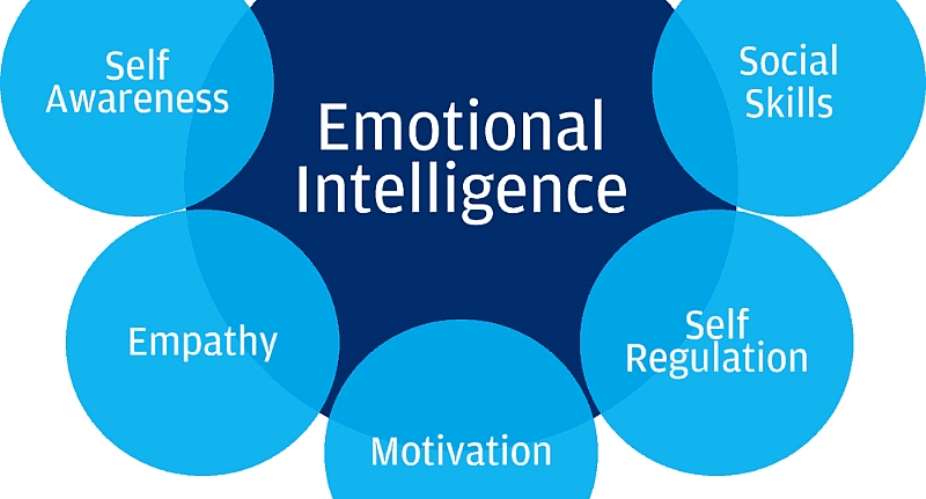Although medical experts frequently concentrate on physical health, it is equally important to highlight the significant influence emotional intelligence has on brain health. Because of the complexity of our brains, it is essential for general wellbeing to comprehend the ways in which emotions impact brain function. The ability to identify, comprehend, and control one's own and other people's emotions is known as emotional intelligence, or EQ. This ability is essential for building fruitful interpersonal interactions as well as being important to the structure and function of our brains.
Emotions and the brain are closely related. Neurologically speaking, the amygdala, prefrontal cortex, and hippocampus are the main brain regions that are involved in emotional intelligence. These regions are in charge of regulating, processing, and storing emotions as well as emotional memories.
Studies show time and time again that those with stronger emotional intelligence have better mental health results. They are more capable of handling stress, controlling anxiety, and preserving psychological health in general. Effective emotion management has a direct impact on brain health by lessening the damaging effects of long-term stress on the structure and function of the brain.
Moreover, improved cognitive talents are linked to strong emotional intelligence. Research indicates that people with stronger emotional control abilities are more adept at paying attention, making decisions, and solving problems. The importance of emotions in influencing our thought processes is highlighted by the relationship found between emotional intelligence and cognitive function.
Improving emotional intelligence actively supports brain health in addition to being beneficial for personal growth. It takes practice to develop self-awareness, self-control, empathy, and social skills in order to develop emotional intelligence. Easy methods such as journaling, finding social support, and practicing mindfulness can greatly improve emotional intelligence and, in turn, brain health.
It is crucial to prioritize emotional intelligence in the fast-paced, modern environment where stress and emotional fluctuations are widespread. On a social level, mental health may be greatly impacted by promoting emotional awareness in businesses and communities and encouraging its growth from an early age through education. It is imperative that the medical community emphasize the role that emotional intelligence plays in preserving brain health. By include conversations about emotional well-being in medical procedures, patients can receive care that is more comprehensive and addresses both physical illnesses and the emotional factors that affect overall health.
In summary, developing emotional intelligence is essential to promoting a better brain and, by extension, a healthier person. We open the door to a more resilient, emotionally intelligent society—one that places equal importance on mental and physical health—by recognizing the close relationship between emotional intelligence and brain health.






 We saved $57.9million from procurement of new verification devices, registration...
We saved $57.9million from procurement of new verification devices, registration...
 Ejisu by-election: Aduomi is a betrayer – Ahiagbah
Ejisu by-election: Aduomi is a betrayer – Ahiagbah
 Dumsor: I’ll be in police custody if I speak, I vex — DKB
Dumsor: I’ll be in police custody if I speak, I vex — DKB
 We'll give daily evidence of Akufo-Addo's supervised thievery from our next gene...
We'll give daily evidence of Akufo-Addo's supervised thievery from our next gene...
 Asiedu Nketia crying because they've shared the positions and left him and his p...
Asiedu Nketia crying because they've shared the positions and left him and his p...
 Mahama's agenda in his next 4-year term will be 'loot and share' — Koku Anyidoho
Mahama's agenda in his next 4-year term will be 'loot and share' — Koku Anyidoho
 If you're president and you can't take care of your wife then you're not worth y...
If you're president and you can't take care of your wife then you're not worth y...
 Foreign Ministry caution Ghanaians against traveling to Northern Mali
Foreign Ministry caution Ghanaians against traveling to Northern Mali
 GHS warns public against misuse of naphthalene balls, it causes newborn jaundice
GHS warns public against misuse of naphthalene balls, it causes newborn jaundice
 Our education style contributes to unemployment - High Skies College President
Our education style contributes to unemployment - High Skies College President
